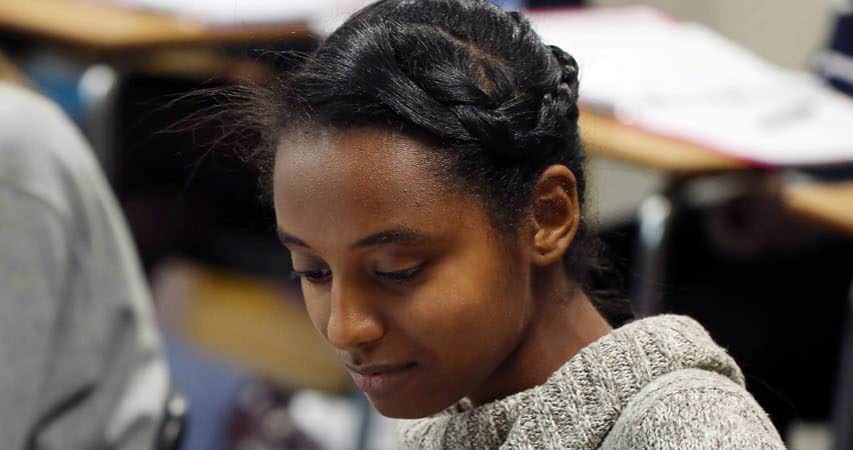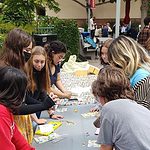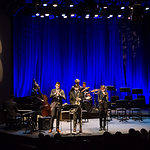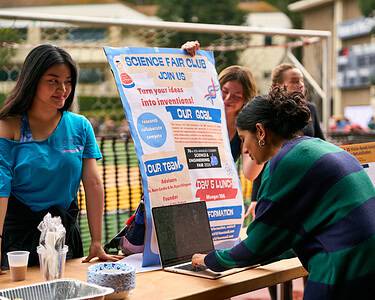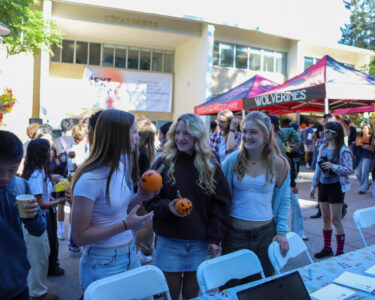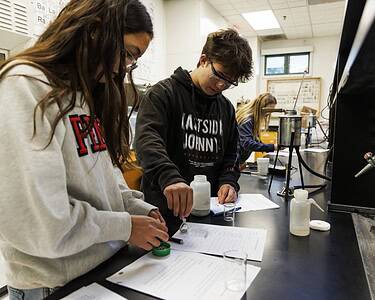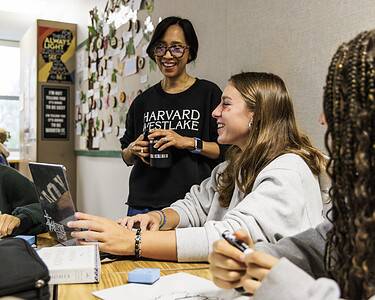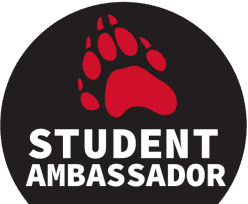By Andrew ’22
By 10th grade, students’ schedules are so varied and tailored to individual interests that it’s rare to share more than a couple classes with another student. Yet, there’s still a course that every sophomore at Harvard-Westlake takes – Life Lab. Life Lab is a year-round class that meets once a cycle. Its purpose is to help sophomores adjust to the Upper School and to develop skills that will help them through the next three years of high school and beyond. Students’ Life Lab sections are determined by their “dean groups” – a cohort of around 25 classmates who have been assigned the same dean to guide them through high school and the college admissions process. Each Life Lab section is taught by a dean, one or two other faculty members, and, starting this year, a senior teaching assistant. I’m the TA for my dean’s Life Lab group, and revisiting the course at the end of my high school experience has helped me better appreciate it.
At the beginning of the school year, Life Lab focuses on welcoming new sophomores to the Upper School community. The first lessons cover all parts of student life, from making schedule changes to joining clubs to managing significantly larger amounts of reading for 10th grade history. The curriculum is ever-changing to respond to students’ concerns. A challenge many sophomores face is talking with teachers and reaching out for support. To help students feel more comfortable in these conversations, we devoted a lesson to role playing scenarios in which students practiced talking with “teachers” in common scenarios. Building relationships with teachers is something I really came to appreciate at the Upper School, so it was exciting to share these insights with sophomores.
Life Lab then transitions to helping students explore their identities and learn about others’ experiences. One classic, popular example is the Myers Briggs Personality Test. After receiving their Myers Briggs type (mine is ISFJ), students participate in group activities that illuminate differences in these categories and help students understand their strengths. Class discussions also challenge students to examine parts of one’s identity they may not have considered before. One of the most meaningful moments in my Life Lab experience was an honest discussion on economic background and its impact on social interactions on campus.
To culminate a year of reflection and growth, Life Lab ends with a Service-Learning Project. This project asks students to explore the intersections between their interests and community needs to propose a project that will address those needs. The project requires students to conduct research, having conversations with community members, and constantly reflect on new information. At the end of the year, students design and present a service project idea based on the research they have conducted. This assignment is a new addition to the Life Lab curriculum that I didn’t have when I was a sophomore, so I’m excited to see how this year’s tenth graders will make the most of this opportunity.

